
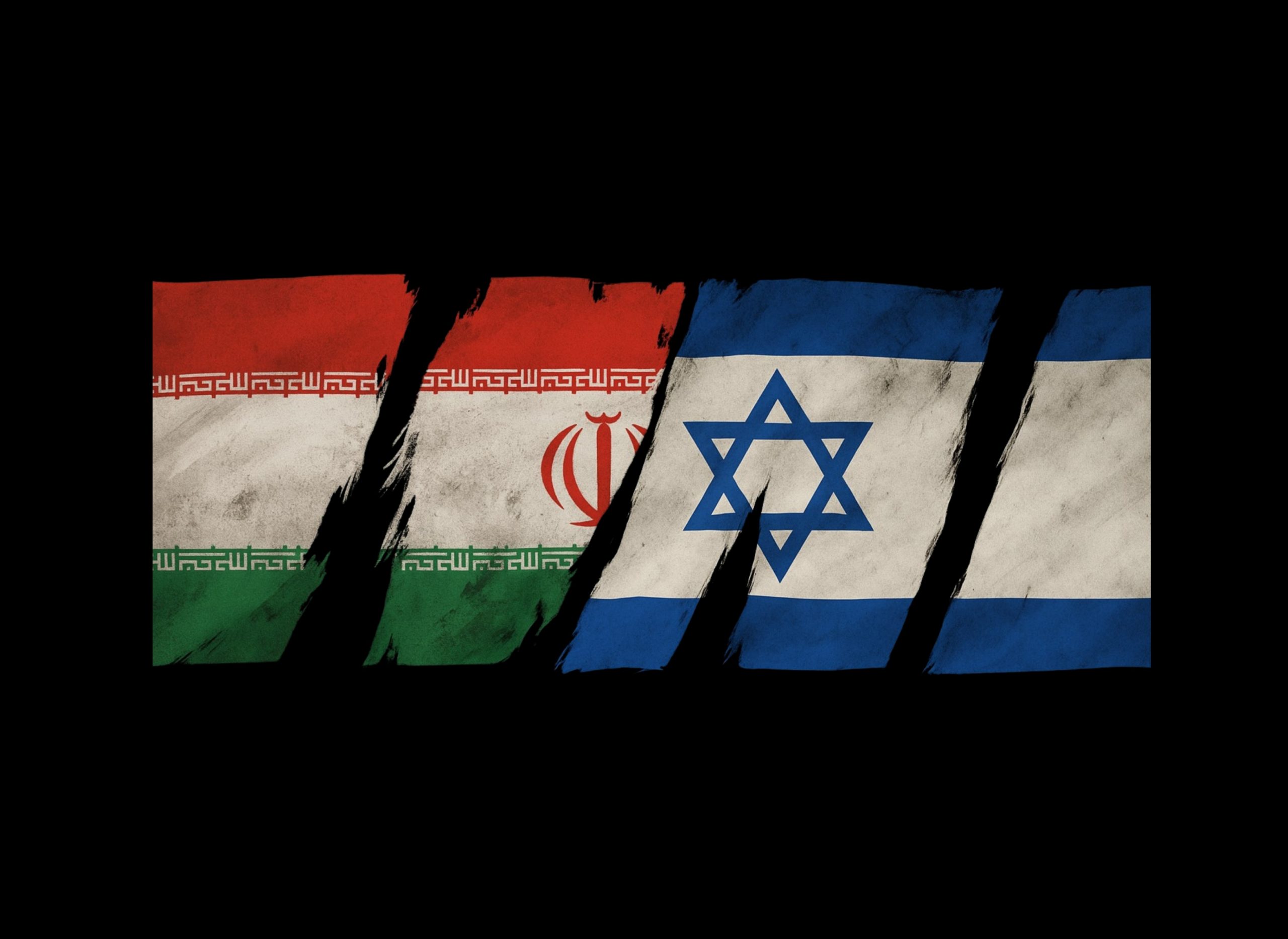
This illustration has been created by AI to use only in this article.
The bitter and incendiary rivalry between Iran and Israel fuels both nations’ military, diplomatic, and strategic capacities while inflicting damage upon one another and their proxies. The potential for the use of nuclear weapons is low because the governments of Iran and Israel themselves are proxies to the multipolar powers that ultimately do not support the use of nuclear weapons. A nuclear-armed Iran could, however, use its deterrence to amplify anti-American rhetoric, challenge Israel’s control of Palestine, and reorient the Middle East away from Western influence.
The only route to lasting peace is if the Gulf states strategically unify with Iran to transcend the differences of ideologies and resolve regional problems without interference from or reliance on foreign powers, and for Israel to agree to remove illegal settlements and apartheid barriers from the Palestinian territories. This is extremely difficult because of the history of multipolar powers competing in the region. Moreover, Iran and Israel benefit from the hostility by strengthening their strategic partnerships with Russia, China, and the United States. Iran and Israel legitimize their own geopolitical influence and strategy, each competing for resources and manpower. Russia and Iran recently deepened their alliance by signing a 20-year strategic partnership treaty in January of 2025; however, this did not include military guarantees for Iran.
Iran has also recently been integrated into geopolitical blocs such as the Shanghai Cooperation Organization and BRICS. While Israel has deepened its strategic relationship with the United States and some Arab countries through the Abraham Accords, the United Nations International Court of Justice (ICJ) continues to handle cases related to the obligations of Israel to the Presence and Activities of the United Nations and the application of the Convention on the Prevention and Punishment of the Crime of Genocide in the Gaza Strip (South Africa v. Israel).
The conflict with Israel strengthens Iran’s revolutionary, anti-Western ideology. The Iranian regime leverages external threats to suppress internal opposition. In 2022, when Mahsa Amini was arrested by the Guidance Patrol and died in police custody for violating the mandatory hijab law, widespread anti-government demonstrations erupted. The government spent several months into early 2023 arresting tens of thousands of protesters, and then pardoning them. The Iranian government was able to demonstrate its tyrannical grip on its people, but the widespread discontent persisted, and the government lost much of its public perception of legitimate power, despite its heavy subsidies on oil and popular anti-Western sentiment, both of which have benefited the stability of the state since the 1979 Revolution.
is a Master of Arts graduate in International Affairs Policy and Analysis of American University, School of International Service. Her regional focus as a policy analyst is the Middle East/North Africa and the U.S. foreign policy.
The bitter and incendiary rivalry between Iran and Israel fuels both nations’ military, diplomatic, and strategic capacities while inflicting damage upon one another and their proxies. The potential for the use of nuclear weapons is low because the governments of Iran and Israel themselves are proxies to the multipolar powers that ultimately do not support the use of nuclear weapons. A nuclear-armed Iran could, however, use its deterrence to amplify anti-American rhetoric, challenge Israel’s control of Palestine, and reorient the Middle East away from Western influence.
The only route to lasting peace is if the Gulf states strategically unify with Iran to transcend the differences of ideologies and resolve regional problems without interference from or reliance on foreign powers, and for Israel to agree to remove illegal settlements and apartheid barriers from the Palestinian territories. This is extremely difficult because of the history of multipolar powers competing in the region. Moreover, Iran and Israel benefit from the hostility by strengthening their strategic partnerships with Russia, China, and the United States. Iran and Israel legitimize their own geopolitical influence and strategy, each competing for resources and manpower. Russia and Iran recently deepened their alliance by signing a 20-year strategic partnership treaty in January of 2025; however, this did not include military guarantees for Iran.
Iran has also recently been integrated into geopolitical blocs such as the Shanghai Cooperation Organization and BRICS. While Israel has deepened its strategic relationship with the United States and some Arab countries through the Abraham Accords, the United Nations International Court of Justice (ICJ) continues to handle cases related to the obligations of Israel to the Presence and Activities of the United Nations and the application of the Convention on the Prevention and Punishment of the Crime of Genocide in the Gaza Strip (South Africa v. Israel).
The conflict with Israel strengthens Iran’s revolutionary, anti-Western ideology. The Iranian regime leverages external threats to suppress internal opposition. In 2022, when Mahsa Amini was arrested by the Guidance Patrol and died in police custody for violating the mandatory hijab law, widespread anti-government demonstrations erupted. The government spent several months into early 2023 arresting tens of thousands of protesters, and then pardoning them. The Iranian government was able to demonstrate its tyrannical grip on its people, but the widespread discontent persisted, and the government lost much of its public perception of legitimate power, despite its heavy subsidies on oil and popular anti-Western sentiment, both of which have benefited the stability of the state since the 1979 Revolution.
is a Master of Arts graduate in International Affairs Policy and Analysis of American University, School of International Service. Her regional focus as a policy analyst is the Middle East/North Africa and the U.S. foreign policy.
Iran is ranked as the largest subsidized oil industry in the world; it is a rentier economy. Iran’s key economic policy is rooted in the thought that by distributing the wealth of its oil resources back to its citizens, it can maintain social stability domestically through reduced taxation. However, this results in a lack of government accountability to its people. It is possible that Iran is enriching its uranium to diversify its economy away from the domination of one sector and avoid this side effect of a rentier economy, as it is blocked from investments by heavy sanctions from much of the world. Iran could use highly enriched uranium to create breeder reactors that recycle and consume all actinides. Breeder reactors have been in development in China, Russia, India, and Japan with support from the U.S. Department of Energy and Bill Gates’ nuclear reactor engineering company, TerraPower, without restrictive limits.
The Iranian nuclear proliferation threat provides Israel with a clear and unifying external enemy, which helps justify significant defense spending, military innovation, and aggressive security policies to the United States. It allows Israeli government officials to rally public support around their security and distract its population from the corruption cases brought against its leadership. The Iranian threat has catalyzed Israel’s military modernization, which has been used to deepen its ties with the U.S., Gulf states, and expand its influence on the Middle East through escalating its genocide in Gaza and the West Bank and claiming territory in Syria and Lebanon.
Threats from Iran accelerate Israel’s military advancement in high-tech defense systems such as the Iron Dome, Arrow Missiles, and cybersecurity investments. The Israel Defense Forces (IDF) military system, David’s Sling, was developed in 2017 by Rafael Advanced Defense Systems and Raytheon. Israel conducts air, land, sea, and cyber MABAM operations, also known as the “war-between-wars strategy.” Israel works with the U.S. to blend cyber warfare, Mossad strikes, and air campaigns to tackle threats. In an operation targeting Iranian air defenses and missiles, Israel’s Mossad sent their operatives to smuggle drone parts and munitions into central Iran in 2025.
The drones were activated and launched toward missile launchers at the Esfajabad base, and their airstrikes targeted top Iranian military officials and nuclear scientists. Iran’s nuclear ambitions and proxy network—including Hezbollah, militias in Syria and Iraq, and Hamas—have prompted Israel to adopt a more assertive security posture. Syria is beginning to reform relationships with the Gulf Cooperation Council (GCC), but it is uncertain how strong a relationship the new government will forge with its neighbors.
Iran is ranked as the largest subsidized oil industry in the world; it is a rentier economy. Iran’s key economic policy is rooted in the thought that by distributing the wealth of its oil resources back to its citizens, it can maintain social stability domestically through reduced taxation. However, this results in a lack of government accountability to its people. It is possible that Iran is enriching its uranium to diversify its economy away from the domination of one sector and avoid this side effect of a rentier economy, as it is blocked from investments by heavy sanctions from much of the world. Iran could use highly enriched uranium to create breeder reactors that recycle and consume all actinides. Breeder reactors have been in development in China, Russia, India, and Japan with support from the U.S. Department of Energy and Bill Gates’ nuclear reactor engineering company, TerraPower, without restrictive limits.
The Iranian nuclear proliferation threat provides Israel with a clear and unifying external enemy, which helps justify significant defense spending, military innovation, and aggressive security policies to the United States. It allows Israeli government officials to rally public support around their security and distract its population from the corruption cases brought against its leadership. The Iranian threat has catalyzed Israel’s military modernization, which has been used to deepen its ties with the U.S., Gulf states, and expand its influence on the Middle East through escalating its genocide in Gaza and the West Bank and claiming territory in Syria and Lebanon.
Threats from Iran accelerate Israel’s military advancement in high-tech defense systems such as the Iron Dome, Arrow Missiles, and cybersecurity investments. The Israel Defense Forces (IDF) military system, David’s Sling, was developed in 2017 by Rafael Advanced Defense Systems and Raytheon. Israel conducts air, land, sea, and cyber MABAM operations, also known as the “war-between-wars strategy.” Israel works with the U.S. to blend cyber warfare, Mossad strikes, and air campaigns to tackle threats. In an operation targeting Iranian air defenses and missiles, Israel’s Mossad sent their operatives to smuggle drone parts and munitions into central Iran in 2025.
The drones were activated and launched toward missile launchers at the Esfajabad base, and their airstrikes targeted top Iranian military officials and nuclear scientists. Iran’s nuclear ambitions and proxy network—including Hezbollah, militias in Syria and Iraq, and Hamas—have prompted Israel to adopt a more assertive security posture. Syria is beginning to reform relationships with the Gulf Cooperation Council (GCC), but it is uncertain how strong a relationship the new government will forge with its neighbors.
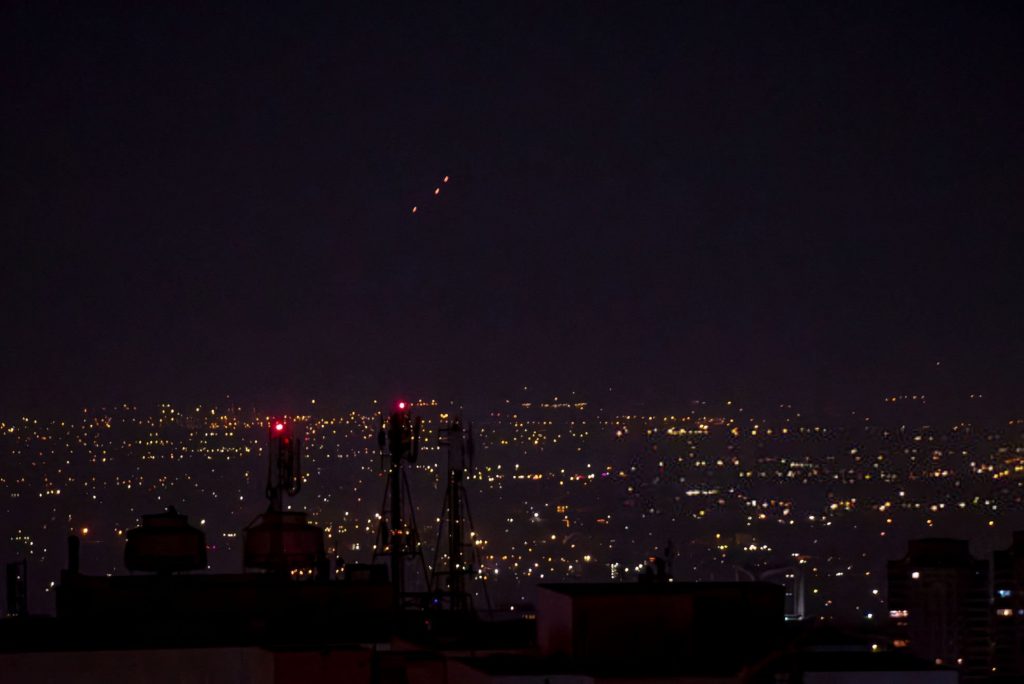
By positioning itself as the principal challenger to Israel—especially in response to Israeli policies in Palestine—Iran has gained political and ideological legitimacy. Iran and Israel have both used the threats made by one another to take advantage of the “rally around the flag” effect, where the approval rate of a nation’s leader temporarily surges during an emergency. This strategy unites a large portion of the population and legitimizes the use of unitary executive power, both domestically and internationally. In addition to legitimizing the use of unitary executive power, America prospers from its relationship with Israel through its military-industrial complex. China profits from a conflict-free Iran by securing Iranian oil for manufacturing; 90% of Iran’s oil exports are currently going to China. China relies on Iran for 15% of its oil imports but imports significantly more oil from Russia, Saudi Arabia, Malaysia, Iraq, and Oman.
Russia benefits from securing Iran’s alliance through its trade of hydrocarbons and investments in a wide market of goods. All three multipolar powers are able to expand their own military-industrial complexes and test their weapons in the proxy wars in the region, but their interest in the region is ultimately resource security. Geopolitically, the ongoing standoff supports Iran’s pivot toward alternative global powers. As Western sanctions isolate it economically and diplomatically, Iran’s confrontation with Israel helps justify closer ties with Russia and China, who benefit from challenging the U.S.-led order in the Middle East. Israel has gained legitimacy by strengthening its regional and international alliances through agreements such as the Abraham Accords and using the threat of Iran to solidify America’s commitments to Israeli security.
The ironic desire to prevent nuclear proliferation has been one of the chief goals that led the United States to form a closer relationship with Israel for decades and dramatically increased Israel’s military bargaining power. While the International Atomic Energy Agency stated that Iran violated its non-proliferation agreements, Israel has neither signed nor ratified the Nuclear Non-Proliferation Treaty (NPT) of 1968. Israel sought an exemption to the rules of nuclear non-proliferation so that it could import atomic material into the country. Israel became a prime beneficiary of the 1957 Eisenhower Doctrine, which was in strong opposition to Arab nationalism. Former Secretary of State John Foster Dulles warned those at a closed-door Senate hearing that if America does not make its influence strong in the Middle East and North Africa, “it’s ‘curtains’ for Israel.”
In just a couple of months, the President, backed by Congress, used military force and up to $200 million in economic aid to assist any Middle Eastern country threatened by direct or indirect aggression from any country controlled by international communism. Israel was seen as a “pro-Western bulwark against future Soviet gains in the Middle East,” and France helped Israel construct a secret nuclear reactor at Dimona in the Negev Desert. The Central Intelligence Agency (CIA) believed that when completed, the reactor could “produce eight to ten kilograms of weapons-grade plutonium per year, enough for one atomic bomb.” Neither Eisenhower nor Kennedy were confident in Israel’s intentions; during a briefing on December 6th, 1960, Kennedy told Eisenhower that he believed an atomic development in Israel is “highly distressing.” As of 2025, Israel does not officially acknowledge its nuclear status. This is consistent with its policy known as “nuclear opacity” or “strategic ambiguity,” despite the development of the Jericho III, an intercontinental ballistic missile (ICBM) capable of delivering a nuclear weapon, and the test-launch of the subsequent Jericho IV.
While the International Atomic Energy Agency stated that Iran violated its non-proliferation agreements, Israel has neither signed nor ratified the Nuclear Non-Proliferation Treaty (NPT) of 1968.
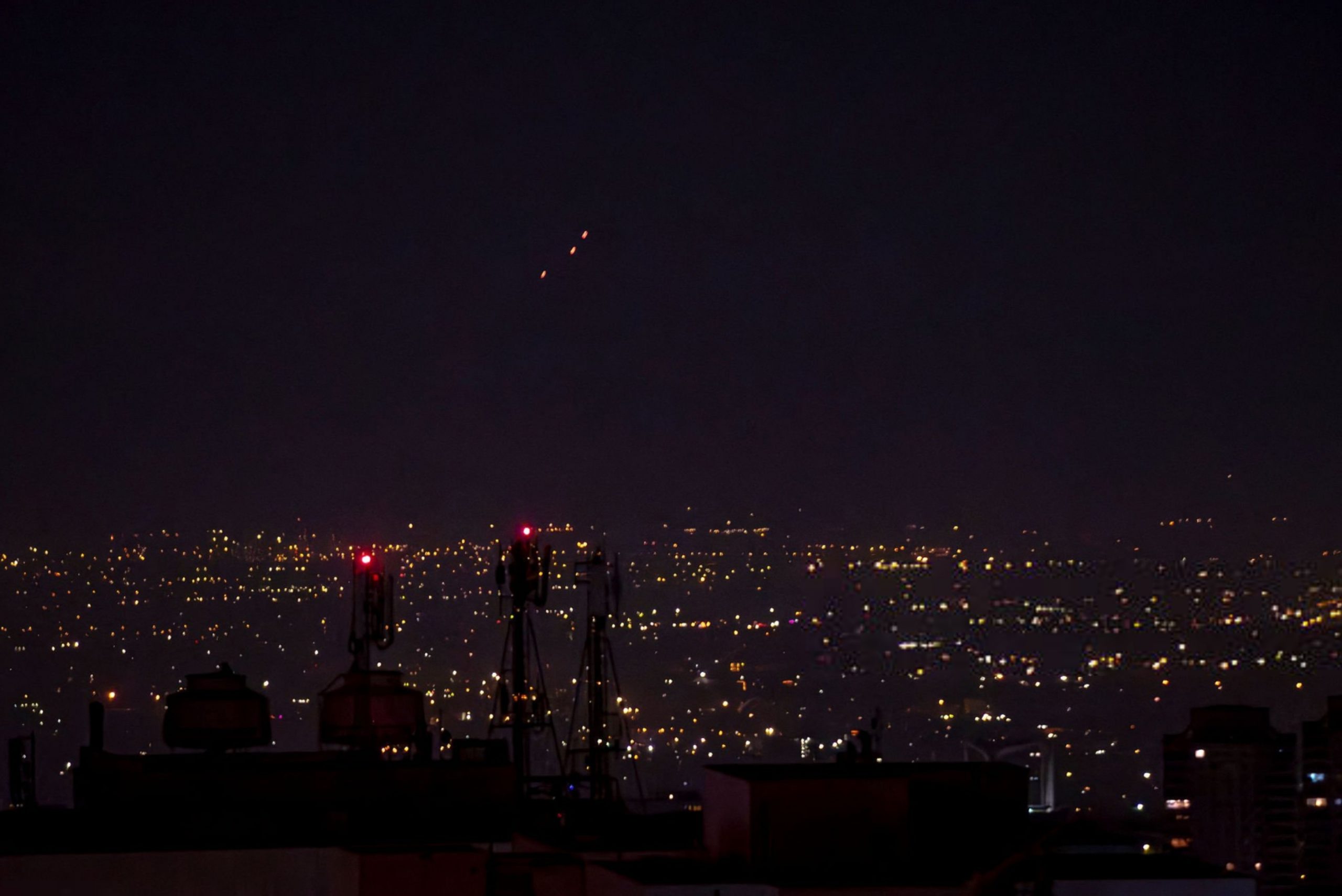
Israel gains legitimacy from the conflict through domestic political strengthening. Israel’s top security officials regularly claim that Iran is extremely close to developing a nuclear weapon, and this narrative has reinforced nationalism and unity within Israel for years. However, predictions for their completion have been unreliable and questionable, seeing as Benjamin Netanyahu also called for regime change in Iraq in 2002 due to the assertion that Saddam was working toward the development of nuclear weapons, and this claim was also unfounded. Security concerns can bolster government popularity and legitimacy, which is a prominent reason why Netanyahu has turned Israel’s attention to international conflicts rather than Israel’s government’s intelligence failures and personal corruption cases while in office.
Netanyahu has had to balance public opinion and recommendations for indictment by the police in 1997, 1999, and then again in 2018 for bribery, fraud, and breach of trust. He was formally indicted on bribery and fraud charges and was charged in 2020. Before the trial was settled, he was sworn in for his fifth term as Prime Minister. Netanyahu ordered the dispersal of the demonstrations and protests against him at his residence by using COVID-19 special regulations, limiting them to 20 people and at a distance of 1,000 meters from their homes. In reaction to these regulations on the right of assembly, the demonstrations were enlarged and dispersed to over 1,000 centers, with over 100,000 protesters reportedly participating.
Netanyahu failed to form a stable governing coalition between 2019 and 2021, and many voters felt a sense of political paralysis due to the lack of integrity in his leadership. The Iranian nuclear narrative persisted, however, and on January 3rd, 2020, Qasem Soleimani was assassinated by a U.S. drone strike—one of the most high-profile extrajudicial killings of the decade—authorized by President Trump. By November 2020, an emboldened Israel assassinated Mohsen Fakhrizadeh, an Iranian nuclear scientist. In May of 2021, settler expansion and violence against Palestinians in Sheikh Jarrah and Al-Aqsa led to more criticism over Netanyahu’s failure to create a lasting solution. On June 13th, 2021, Netanyahu was ousted by the new coalition government led by Naftali Bennett and Yair Lapid until the coalition collapsed in 2022.
Meanwhile, Iran and Russia signed a $1.7 billion deal, after which Iran supplied drones to the Alabuga plant in the Tatarstan region. Netanyahu led a dramatic political comeback in 2022, marked by major controversial judicial reforms. These reforms reduced the power of the Supreme Court, giving the Executive branch control over judicial appointments, and widespread protests erupted as a consequence. Netanyahu used his anti-Palestinian and anti-Iranian national security concerns to overshadow domestic debates, which has proven somewhat successful in his push to coalesce with right-wing and ultra-Orthodox parties despite a narrow margin. In another exhibition of military strength, Israel assassinated a commander in the IRGC, Hassan Sayyad Khodaei, in 2022—another high-profile killing.
In early 2023, Netanyahu’s government legalized the construction of a large number of settlements in the West Bank. In just a few months, Israel constructed over 10,000 housing units, dwarfing the number that were constructed in 2022 by nearly 300%. Decades of proxy war, revolution, and settler expansion led to the Iran-backed Hamas attack on Israel on October 7th, 2023. Netanyahu was criticized for presiding over Israel’s biggest intelligence failure in decades after the Hamas attack on October 7th, 2023, and his government’s failure to return all of the hostages. The majority of Israelis held Netanyahu responsible and believed he should resign. This genocide—a cost of the proxy war with Iran—also led to an Israeli airstrike killing several Iranian commanders in an Iranian Embassy building in Damascus, Syria, in April of 2024, after which Iran launched a drone and missile attack on Israel.
Israel, in turn, attacked an Iranian aircraft system that was close to a nuclear facility. Ismail Haniyeh, the former leader of Hamas in the Gaza Strip, was assassinated by Israel on July 31st, 2024, in Tehran. This took place just days after he met with Mahmoud al-Aloul, the deputy head of Fatah, which controls the Palestinian Authority and has some administrative control in the West Bank, in Beijing. Chinese Foreign Minister Wang Yi stated that the opposing Palestinian party factions, including 12 other groups, signed an agreement he referred to as the “Beijing Declaration” to block Israeli control of Gaza after the war ends at that meeting. The assassination weakened Iran’s proxy organization, Hamas, and took negotiations further backward. A few months later, on November 21st, 2024, the International Criminal Court (ICC) issued arrest warrants for Netanyahu, Yoav Gallant, and Hamas military commander Mohammed Deif for war crimes in Gaza.
Iran experienced increasing domestic instability when, in January of 2025, two senior Islamic judges in the Tehran Supreme Court, Ali Razini and Mohammad Moghiseh, were assassinated by an individual who could not be questioned for his motives, as he committed suicide shortly after. The 2025 Gaza war ceasefire ended on the night of March 18th when Israel launched an attack on Gaza. That same day, Netanyahu was scheduled to testify in his corruption trial, but as a result of the attacks, the legal proceedings were postponed until June 2025 after the Jerusalem District Court reviewed Netanyahu’s request.
On June 13th, 2025, Netanyahu authorized airstrikes against Iran, marking the beginning of the Iran-Israel war, further postponing any chance that the heads of state will face accountability for the violence. This time, Israel and America had the upper hand, with legitimacy coming from the International Atomic Energy Agency (IAEA) warning that Iran had reached 60% enrichment of 400 kg of uranium after the U.S. withdrew from the JCPOA, which originally limited Iran’s production of uranium enriched over 3.67%. The IAEA has said that it had no credible evidence that Iran was building a weapon, but that Tehran was not complying with its nuclear non-proliferation obligations. The IAEA released these findings just one day before Israel launched its June 13th attack. The Central Intelligence Agency (CIA) and the Defense Intelligence Agency (DIA) have presented differing views on whether the Iranian nuclear sites were destroyed in the June 2025 attacks.
By positioning itself as the principal challenger to Israel—especially in response to Israeli policies in Palestine—Iran has gained political and ideological legitimacy. Iran and Israel have both used the threats made by one another to take advantage of the “rally around the flag” effect, where the approval rate of a nation’s leader temporarily surges during an emergency. This strategy unites a large portion of the population and legitimizes the use of unitary executive power, both domestically and internationally. In addition to legitimizing the use of unitary executive power, America prospers from its relationship with Israel through its military-industrial complex. China profits from a conflict-free Iran by securing Iranian oil for manufacturing; 90% of Iran’s oil exports are currently going to China. China relies on Iran for 15% of its oil imports but imports significantly more oil from Russia, Saudi Arabia, Malaysia, Iraq, and Oman.
Russia benefits from securing Iran’s alliance through its trade of hydrocarbons and investments in a wide market of goods. All three multipolar powers are able to expand their own military-industrial complexes and test their weapons in the proxy wars in the region, but their interest in the region is ultimately resource security. Geopolitically, the ongoing standoff supports Iran’s pivot toward alternative global powers. As Western sanctions isolate it economically and diplomatically, Iran’s confrontation with Israel helps justify closer ties with Russia and China, who benefit from challenging the U.S.-led order in the Middle East. Israel has gained legitimacy by strengthening its regional and international alliances through agreements such as the Abraham Accords and using the threat of Iran to solidify America’s commitments to Israeli security.
The ironic desire to prevent nuclear proliferation has been one of the chief goals that led the United States to form a closer relationship with Israel for decades and dramatically increased Israel’s military bargaining power. While the International Atomic Energy Agency stated that Iran violated its non-proliferation agreements, Israel has neither signed nor ratified the Nuclear Non-Proliferation Treaty (NPT) of 1968. Israel sought an exemption to the rules of nuclear non-proliferation so that it could import atomic material into the country. Israel became a prime beneficiary of the 1957 Eisenhower Doctrine, which was in strong opposition to Arab nationalism. Former Secretary of State John Foster Dulles warned those at a closed-door Senate hearing that if America does not make its influence strong in the Middle East and North Africa, “it’s ‘curtains’ for Israel.”
In just a couple of months, the President, backed by Congress, used military force and up to $200 million in economic aid to assist any Middle Eastern country threatened by direct or indirect aggression from any country controlled by international communism. Israel was seen as a “pro-Western bulwark against future Soviet gains in the Middle East,” and France helped Israel construct a secret nuclear reactor at Dimona in the Negev Desert. The Central Intelligence Agency (CIA) believed that when completed, the reactor could “produce eight to ten kilograms of weapons-grade plutonium per year, enough for one atomic bomb.” Neither Eisenhower nor Kennedy were confident in Israel’s intentions; during a briefing on December 6th, 1960, Kennedy told Eisenhower that he believed an atomic development in Israel is “highly distressing.” As of 2025, Israel does not officially acknowledge its nuclear status. This is consistent with its policy known as “nuclear opacity” or “strategic ambiguity,” despite the development of the Jericho III, an intercontinental ballistic missile (ICBM) capable of delivering a nuclear weapon, and the test-launch of the subsequent Jericho IV.
Israel gains legitimacy from the conflict through domestic political strengthening. Israel’s top security officials regularly claim that Iran is extremely close to developing a nuclear weapon, and this narrative has reinforced nationalism and unity within Israel for years. However, predictions for their
completion have been unreliable and questionable, seeing as Benjamin Netanyahu also called for regime change in Iraq in 2002 due to the assertion that Saddam was working toward the development of nuclear weapons, and this claim was also unfounded. Security concerns can bolster government popularity and legitimacy, which is a prominent reason why Netanyahu has turned Israel’s attention to international conflicts rather than Israel’s government’s intelligence failures and personal corruption cases while in office.
Netanyahu has had to balance public opinion and recommendations for indictment by the police in 1997, 1999, and then again in 2018 for bribery, fraud, and breach of trust. He was formally indicted on bribery and fraud charges and was charged in 2020. Before the trial was settled, he was sworn in for his fifth term as Prime Minister. Netanyahu ordered the dispersal of the demonstrations and protests against him at his residence by using COVID-19 special regulations, limiting them to 20 people and at a distance of 1,000 meters from their homes. In reaction to these regulations on the right of assembly, the demonstrations were enlarged and dispersed to over 1,000 centers, with over 100,000 protesters reportedly participating.
Netanyahu failed to form a stable governing coalition between 2019 and 2021, and many voters felt a sense of political paralysis due to the lack of integrity in his leadership. The Iranian nuclear narrative persisted, however, and on January 3rd, 2020, Qasem Soleimani was assassinated by a U.S. drone strike—one of the most high-profile extrajudicial killings of the decade—authorized by President Trump. By November 2020, an emboldened Israel assassinated Mohsen Fakhrizadeh, an Iranian nuclear scientist. In May of 2021, settler expansion and violence against Palestinians in Sheikh Jarrah and Al-Aqsa led to more criticism over Netanyahu’s failure to create a lasting solution. On June 13th, 2021, Netanyahu was ousted by the new coalition government led by Naftali Bennett and Yair Lapid until the coalition collapsed in 2022.
Meanwhile, Iran and Russia signed a $1.7 billion deal, after which Iran supplied drones to the Alabuga plant in the Tatarstan region. Netanyahu led a dramatic political comeback in 2022, marked by major controversial judicial reforms. These reforms reduced the power of the Supreme Court, giving the Executive branch control over judicial appointments, and widespread protests erupted as a consequence. Netanyahu used his anti-Palestinian and anti-Iranian national security concerns to overshadow domestic debates, which has proven somewhat successful in his push to coalesce with right-wing and ultra-Orthodox parties despite a narrow margin. In another exhibition of military strength, Israel assassinated a commander in the IRGC, Hassan Sayyad Khodaei, in 2022—another high-profile killing.
In early 2023, Netanyahu’s government legalized the construction of a large number of settlements in the West Bank. In just a few months, Israel constructed over 10,000 housing units, dwarfing the number that were constructed in 2022 by nearly 300%. Decades of proxy war, revolution, and settler expansion led to the Iran-backed Hamas attack on Israel on October 7th, 2023. Netanyahu was criticized for presiding over Israel’s biggest intelligence failure in decades after the Hamas attack on October 7th, 2023, and his government’s failure to return all of the hostages. The majority of Israelis held Netanyahu responsible and believed he should resign. This genocide—a cost of the proxy war with Iran—also led to an Israeli airstrike killing several Iranian commanders in an Iranian Embassy building in Damascus, Syria, in April of 2024, after which Iran launched a drone and missile attack on Israel.
Israel, in turn, attacked an Iranian aircraft system that was close to a nuclear facility. Ismail Haniyeh, the former leader of Hamas in the Gaza Strip, was assassinated by Israel on July 31st, 2024, in Tehran. This took place just days after he met with Mahmoud al-Aloul, the deputy head of Fatah, which controls the Palestinian Authority and has some administrative control in the West Bank, in Beijing. Chinese Foreign Minister Wang Yi stated that the opposing Palestinian party factions, including 12 other groups, signed an agreement he referred to as the “Beijing Declaration” to block Israeli control of Gaza after the war ends at that meeting. The assassination weakened Iran’s proxy organization, Hamas, and took negotiations further backward. A few months later, on November 21st, 2024, the International Criminal Court (ICC) issued arrest warrants for Netanyahu, Yoav Gallant, and Hamas military commander Mohammed Deif for war crimes in Gaza.
Iran experienced increasing domestic instability when, in January of 2025, two senior Islamic judges in the Tehran Supreme Court, Ali Razini and Mohammad Moghiseh, were assassinated by an individual who could not be questioned for his motives, as he committed suicide shortly after. The 2025 Gaza war ceasefire ended on the night of March 18th when Israel launched an attack on Gaza. That same day, Netanyahu was scheduled to testify in his corruption trial, but as a result of the attacks, the legal proceedings were postponed until June 2025 after the Jerusalem District Court reviewed Netanyahu’s request.
On June 13th, 2025, Netanyahu authorized airstrikes against Iran, marking the beginning of the Iran-Israel war, further postponing any chance that the heads of state will face accountability for the violence. This time, Israel and America had the upper hand, with legitimacy coming from the International Atomic Energy Agency (IAEA) warning that Iran had reached 60% enrichment of 400 kg of uranium after the U.S. withdrew from the JCPOA, which originally limited Iran’s production of uranium enriched over 3.67%. The IAEA has said that it had no credible evidence that Iran was building a weapon, but that Tehran was not complying with its nuclear non-proliferation obligations. The IAEA released these findings just one day before Israel launched its June 13th attack. The Central Intelligence Agency (CIA) and the Defense Intelligence Agency (DIA) have presented differing views on whether the Iranian nuclear sites were destroyed in the June 2025 attacks.
Likewise, they differed in their debates in 2003 on whether Saddam Hussein had weapons of mass destruction. This was the basis for the United States to pursue regime change in Iraq through a ground invasion. It is within the realm of possibility that a similar justification could be used to pursue a regime change in Iran within the next
decade. On June 27th–29th, 2025, the Jerusalem District Court rejected Netanyahu’s petition for a full postponement of his cross-examination on the basis that there was no sufficient justification to indefinitely delay the hearings, even amid national security concerns with Iran. However, Netanyahu was granted a partial delay for the coming days, slowing the pace of the case by invoking national crises and U.S. political pressure.
With the September 2024 assassination of the secretary-general of Hezbollah, Hassan Nasrallah, in Beirut, and the December 2024 dismantling of the Assad regime in Syria, Iran and its proxies have been severely depleted. Surprisingly, despite a long-standing rivalry with Iran, Saudi Arabia immediately condemned Israel’s strikes on Iran. On July 13th, the Ministry of Foreign Affairs of the Kingdom of Saudi Arabia released a statement strongly condemning and denouncing the “blatant Israeli aggressions against the brotherly Islamic Republic of Iran, which undermine its sovereignty and security and constitute a clear violation of international laws and norms.” Russia and China have not abandoned Iran in its weakened state. Iran has been welcomed into BRICS as a full member, and its Foreign Minister, Abbas Araghchi, attended the 2025 Summit in Rio de Janeiro, Brazil. Xi Jinping and Vladimir Putin were absent at this year’s BRICS Summit, sending representatives and joining virtually.
Tehran received critical support and “strong and unequivocal condemnation” of the U.S. and Israeli airstrikes. A joint statement from BRICS said that the attacks constituted a “violation of international law and the Charter of the United Nations” and that the representatives “express grave concern over the subsequent escalation of the security situation in the Middle East.” Trump has responded to the summit by claiming that the United States government will impose an additional 10% tariff on any countries aligning themselves with the “anti-American policies” of this BRICS group of developing nations.
According to the political scientist and former U.S.-Polish diplomat, Zbigniew Brzezinski, “control of the Eurasian landmass is the key to global domination and control of Central Asia is the key to control of the Eurasian landmass.” This stems from the Heartland Theory, wherein the control of Eastern Europe, the Russian Steppes, and Central Asia was viewed as essential for the mission of conquering Eurasia, Africa, and then the world. The Heartland Theory was proposed by 20th-century British geographer Halford Mackinder in his 1904 paper and highlighted the region’s rich oil, gas, and mineral resources, as well as its historical military significance across empires. Russia and China cooperated with Iran to counterbalance NATO and the influence of the United States in Central Asia, consistent with Brzezinski’s and Mackinder’s theories.
China may be persuaded to provide Tehran with new security assurances in the coming decade. Israel and Iran simultaneously harm and benefit from their rivalry, which has thus far resulted in an emboldened Israel backed by U.S. arms but a relatively stable, though theocratic, Iranian Nezam bolstered by Russia and China. Their actions cause intended and unintended effects that make their way into the individual lives of those who are not engaged in the conflict. This includes citizens of the multipolar powers and casualties of the genocide in Gaza and the West Bank. This is not a zero-sum conflict but rather a dynamic rivalry in which each state’s actions counter the other and amplify their own capacity, alliances, and legitimacy. Despite this, the dynamic is precarious. Escalation, miscalculation, and regional instability loom large if they are left unchecked over the next few decades.
On June 13th, 2025, Netanyahu authorized airstrikes against Iran, marking the beginning of the Iran-Israel war, further postponing any chance that the heads of state will face accountability for the violence.
Likewise, they differed in their debates in 2003 on whether Saddam Hussein had weapons of mass destruction. This was the basis for the United States to pursue regime change in Iraq through a ground invasion. It is within the realm of possibility that a similar justification could be used to pursue a regime change in Iran within the next decade. On June 27th–29th, 2025, the Jerusalem District Court rejected Netanyahu’s petition for a full postponement of his cross-examination on the basis that there was no sufficient justification to indefinitely delay the hearings, even amid national security concerns with Iran. However, Netanyahu was granted a partial delay for the coming days, slowing the pace of the case by invoking national crises and U.S. political pressure.
With the September 2024 assassination of the secretary-general of Hezbollah, Hassan Nasrallah, in Beirut, and the December 2024 dismantling of the Assad regime in Syria, Iran and its proxies have been severely depleted. Surprisingly, despite a long-standing rivalry with Iran, Saudi Arabia immediately condemned Israel’s strikes on Iran. On July 13th, the Ministry of Foreign Affairs of the Kingdom of Saudi Arabia released a statement strongly condemning and denouncing the “blatant Israeli aggressions against the brotherly Islamic Republic of Iran, which undermine its sovereignty and security and constitute a clear violation of international laws and norms.” Russia and China have not abandoned Iran in its weakened state. Iran has been welcomed into BRICS as a full member, and its Foreign Minister, Abbas Araghchi, attended the 2025 Summit in Rio de Janeiro, Brazil. Xi Jinping and Vladimir Putin were absent at this year’s BRICS Summit, sending representatives and joining virtually.
Tehran received critical support and “strong and unequivocal condemnation” of the U.S. and Israeli airstrikes. A joint statement from BRICS said that the attacks constituted a “violation of international law and the Charter of the United Nations” and that the representatives “express grave concern over the subsequent escalation of the security situation in the Middle East.” Trump has responded to the summit by claiming that the United States government will impose an additional 10% tariff on any countries aligning themselves with the “anti-American policies” of this BRICS group of developing nations.
According to the political scientist and former U.S.-Polish diplomat, Zbigniew Brzezinski, “control of the Eurasian landmass is the key to global domination and control of Central Asia is the key to control of the Eurasian landmass.” This stems from the Heartland Theory, wherein the control of Eastern Europe, the Russian Steppes, and Central Asia was viewed as essential for the mission of conquering Eurasia, Africa, and then the world. The Heartland Theory was proposed by 20th-century British geographer Halford Mackinder in his 1904 paper and highlighted the region’s rich oil, gas, and mineral resources, as well as its historical military significance across empires. Russia and China cooperated with Iran to counterbalance NATO and the influence of the United States in Central Asia, consistent with Brzezinski’s and Mackinder’s theories.
China may be persuaded to provide Tehran with new security assurances in the coming decade. Israel and Iran simultaneously harm and benefit from their rivalry, which has thus far resulted in an emboldened Israel backed by U.S. arms but a relatively stable, though theocratic, Iranian Nezam bolstered by Russia and China. Their actions cause intended and unintended effects that make their way into the individual lives of those who are not engaged in the conflict. This includes citizens of the multipolar powers and casualties of the genocide in Gaza and the West Bank. This is not a zero-sum conflict but rather a dynamic rivalry in which each state’s actions counter the other and amplify their own capacity, alliances, and legitimacy. Despite this, the dynamic is precarious. Escalation, miscalculation, and regional instability loom large if they are left unchecked over the next few decades.
Recommended
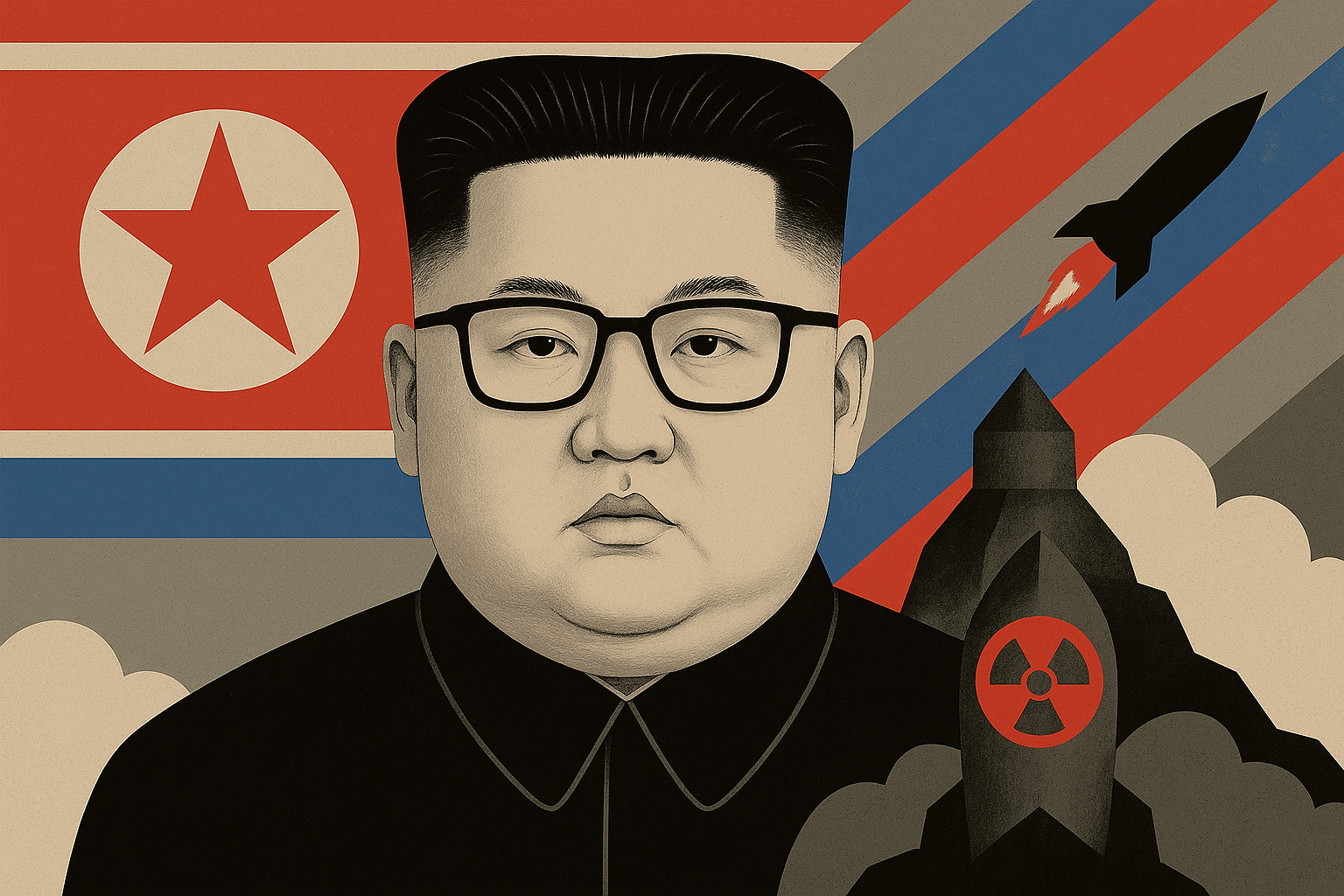
Inside the World’s Most Enduring Dictatorship

How Two Adversaries Legitimize Power Through Endless Confrontation?
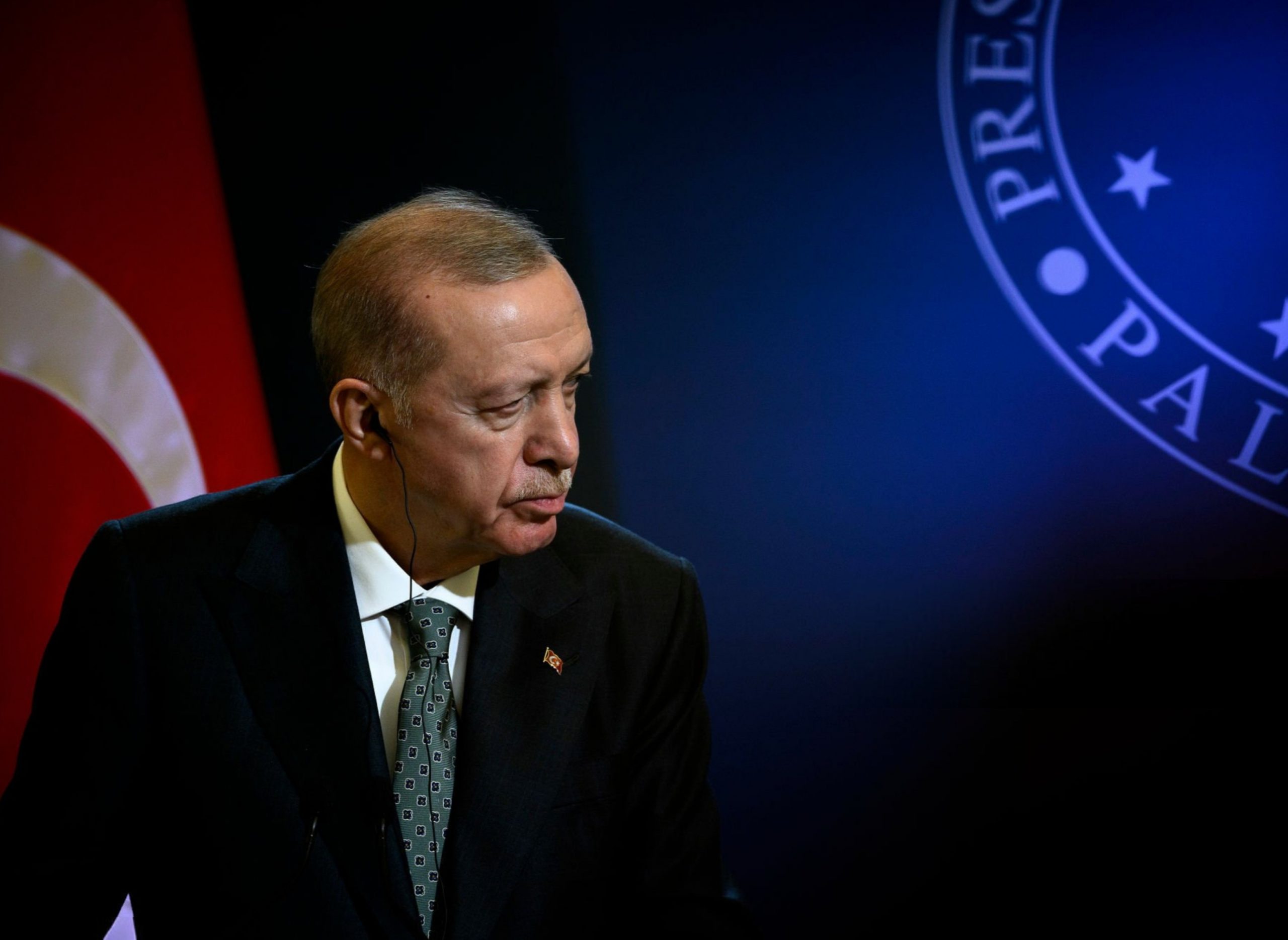
One Chapter Closed, A Harder One Begins

How Europe Balances Russia, China, and Itself

The Exhaustion of Democracy Promotion
